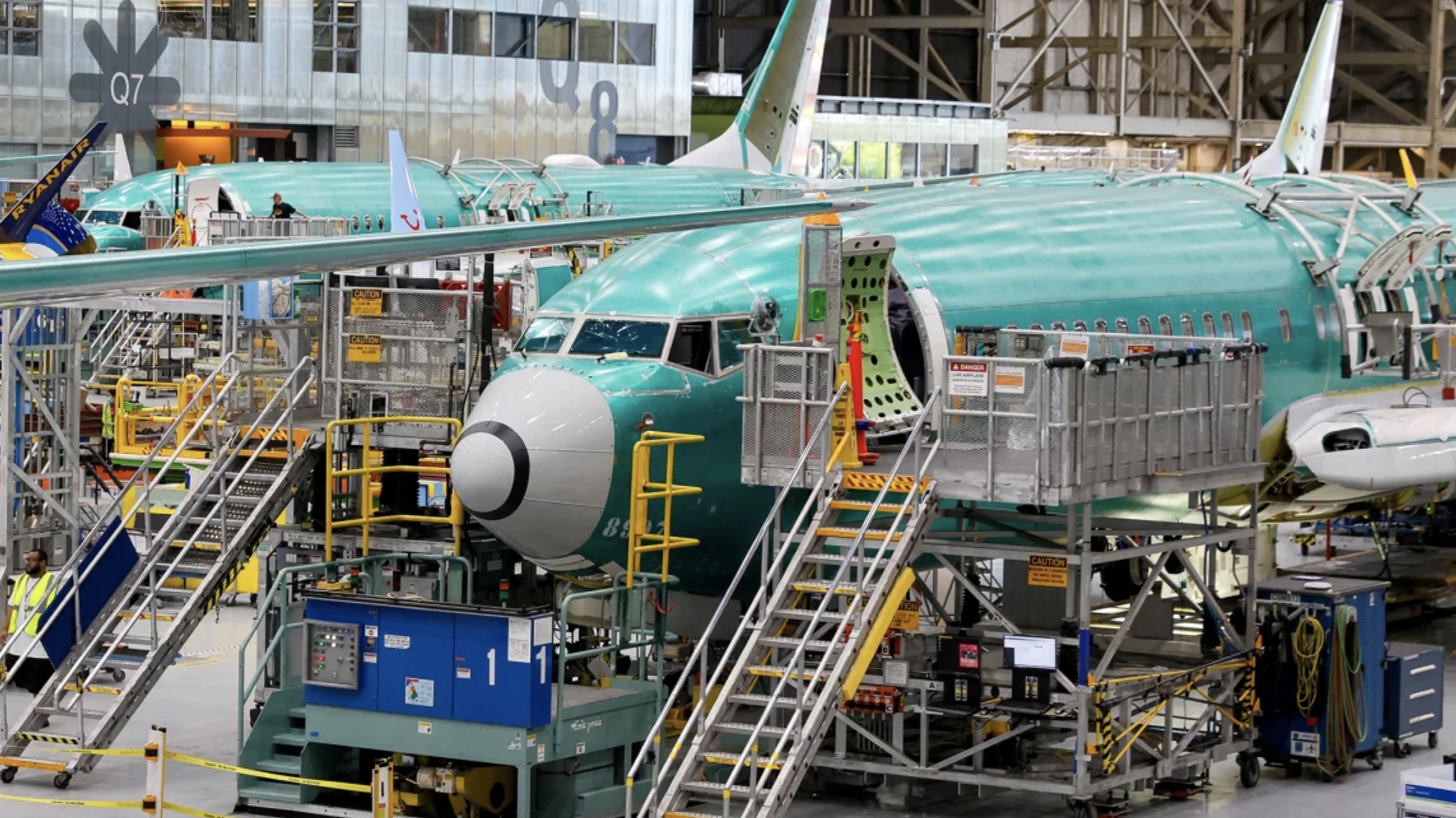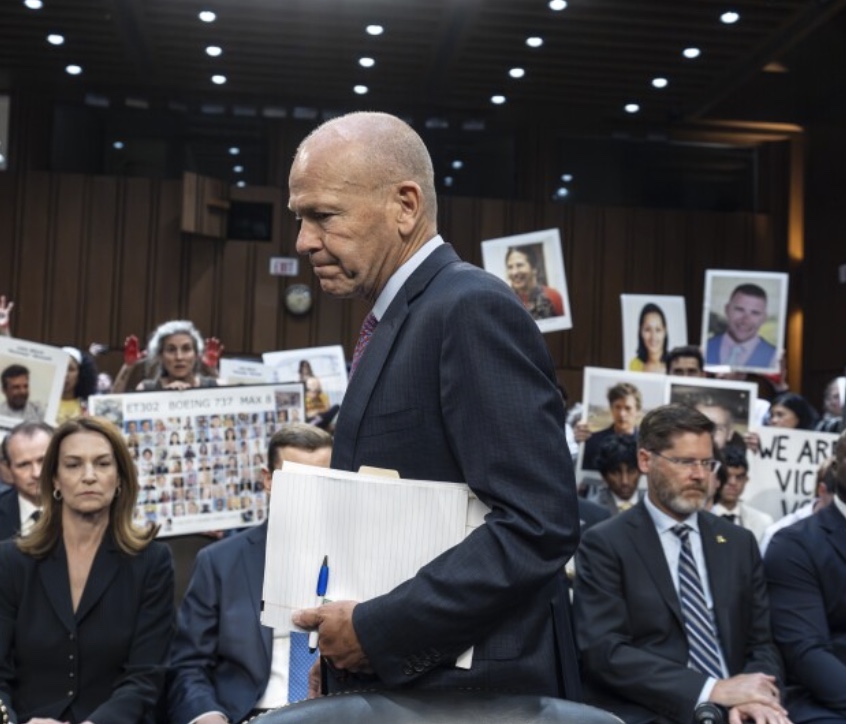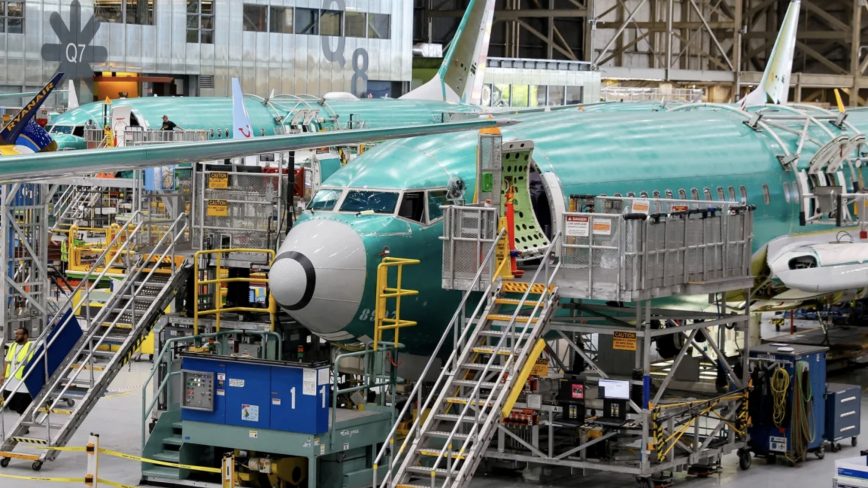Boeing Will Plead Guilty and Pay Nearly Quarter-Billion Dollar Fine!

Boeing Faces the Music
Boeing has agreed to plead guilty to a criminal fraud charge and pay a hefty fine related to the tragic crashes of two 737 Max jets in 2018 and 2019. These incidents, which resulted in the deaths of 346 people, have brought significant scrutiny and legal challenges to the aerospace giant. The U.S. Justice Department announced this agreement in a late Sunday night court filing, marking a critical moment in the ongoing saga of Boeing’s accountability.
Details of the Plea Agreement
In the court filing, the DOJ revealed that Boeing would pay a $243.6 million fine. This amount adds to a previous $243 million fine the company has already paid. The plea deal also mandates that Boeing invest at least $455 million in enhancing its compliance and safety programs. Additionally, Boeing will be on probation for three years, during which time an independent compliance monitor will oversee its operations.

Boeing’s Previous Commitments and Failures
This latest deal comes after an earlier agreement between the DOJ and Boeing in 2021. In that deal, Boeing pledged to implement safety changes following the two fatal Max crashes. However, prosecutors have accused Boeing of not fulfilling its commitments. In May, the federal government accused Boeing of breaching its obligations by failing to establish a robust compliance and ethics program to prevent and detect fraud violations.
Renewed Scrutiny After Recent Incident
Boeing’s operations faced renewed scrutiny earlier this year after a door-plug panel blew off a 737 Max jet in midair in January. This incident, involving Alaska Airlines Flight 1282, prompted further examination by federal regulators and the Justice Department. The event underscored ongoing safety concerns and put additional pressure on Boeing to address its operational flaws comprehensively.
Victims’ Families Seek Justice
Family members of the crash victims have been vocal in their pursuit of justice and accountability. Federal prosecutors have met with these families multiple times, with many pushing for more severe penalties for Boeing. The DOJ acknowledged in its court filing that some families expressed opposition to the plea agreement, arguing that it falls short of holding Boeing fully accountable for the tragic loss of 346 lives.
Legal Pushback from Families’ Attorneys
Attorneys representing the victims’ families have also voiced their discontent with the proposed deal. In a separate filing on Sunday, these attorneys indicated their intention to ask a judge to reject the plea agreement. They argue that the deal unfairly benefits Boeing, offering concessions that other criminal defendants would not receive and failing to deliver justice for the lives lost in the crashes.
Upcoming Court Hearing
A court hearing to discuss the plea agreement could take place later this month in a federal court in Texas. This hearing will be a crucial moment for all parties involved, as it will determine whether the agreement proceeds as planned or if further legal battles lie ahead for Boeing.
A History of Controversy and Consequences
The 737 Max crashes have been a dark chapter in Boeing’s history, leading to intense scrutiny, legal challenges, and financial penalties. The crashes, one involving Lion Air Flight 610 in Indonesia and the other Ethiopian Airlines Flight 302, were linked to a malfunction in the aircraft’s Maneuvering Characteristics Augmentation System (MCAS). This system was designed to improve the handling of the aircraft but instead played a central role in both disasters.
Boeing’s Efforts to Rebuild Trust
In the aftermath of these tragedies, Boeing has made efforts to rebuild trust with regulators, airlines, and the flying public. The company has revamped its safety protocols, conducted extensive pilot training, and made significant changes to the MCAS system. Despite these efforts, incidents like the Alaska Airlines Flight 1282 panel blow-off indicate that challenges remain.
Financial and Operational Impact
The financial repercussions for Boeing have been substantial. In addition to fines and legal fees, the grounding of the 737 Max fleet cost the company billions of dollars. The grounding disrupted airline operations worldwide, led to canceled orders, and eroded Boeing’s market position. Rebuilding its reputation and financial stability has been an ongoing struggle.
Industry-Wide Implications
The issues faced by Boeing have had broader implications for the aviation industry. Regulators around the world have increased scrutiny of aircraft certification processes, leading to changes in how new aircraft are approved for commercial use. These changes aim to prevent similar tragedies and ensure higher safety standards in the industry.

Moving Forward
As Boeing navigates the aftermath of these crashes and the legal agreements that follow, the company faces the critical task of restoring its reputation and ensuring the highest safety standards in its operations. The involvement of an independent compliance monitor for the next three years will be crucial in overseeing these efforts.
Final Thoughts
Boeing’s agreement to plead guilty and pay a nearly quarter-billion dollar fine represents a significant step in addressing the consequences of the 737 Max crashes. While this deal marks progress, it also highlights the ongoing challenges Boeing faces in rebuilding trust and ensuring safety. The reactions of victims’ families and the legal community underscore the complexity and gravity of the situation. As the court hearing approaches, all eyes will be on the proceedings to see how this chapter in Boeing’s history unfolds and what it means for the future of aviation safety.

